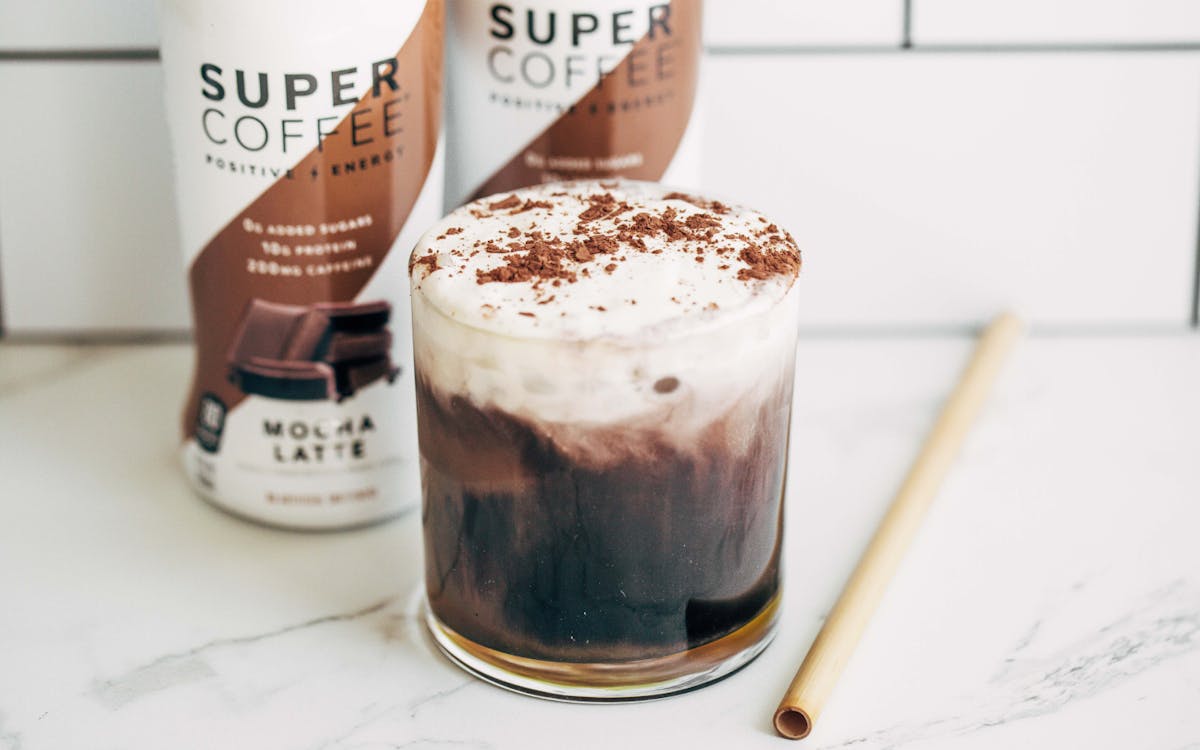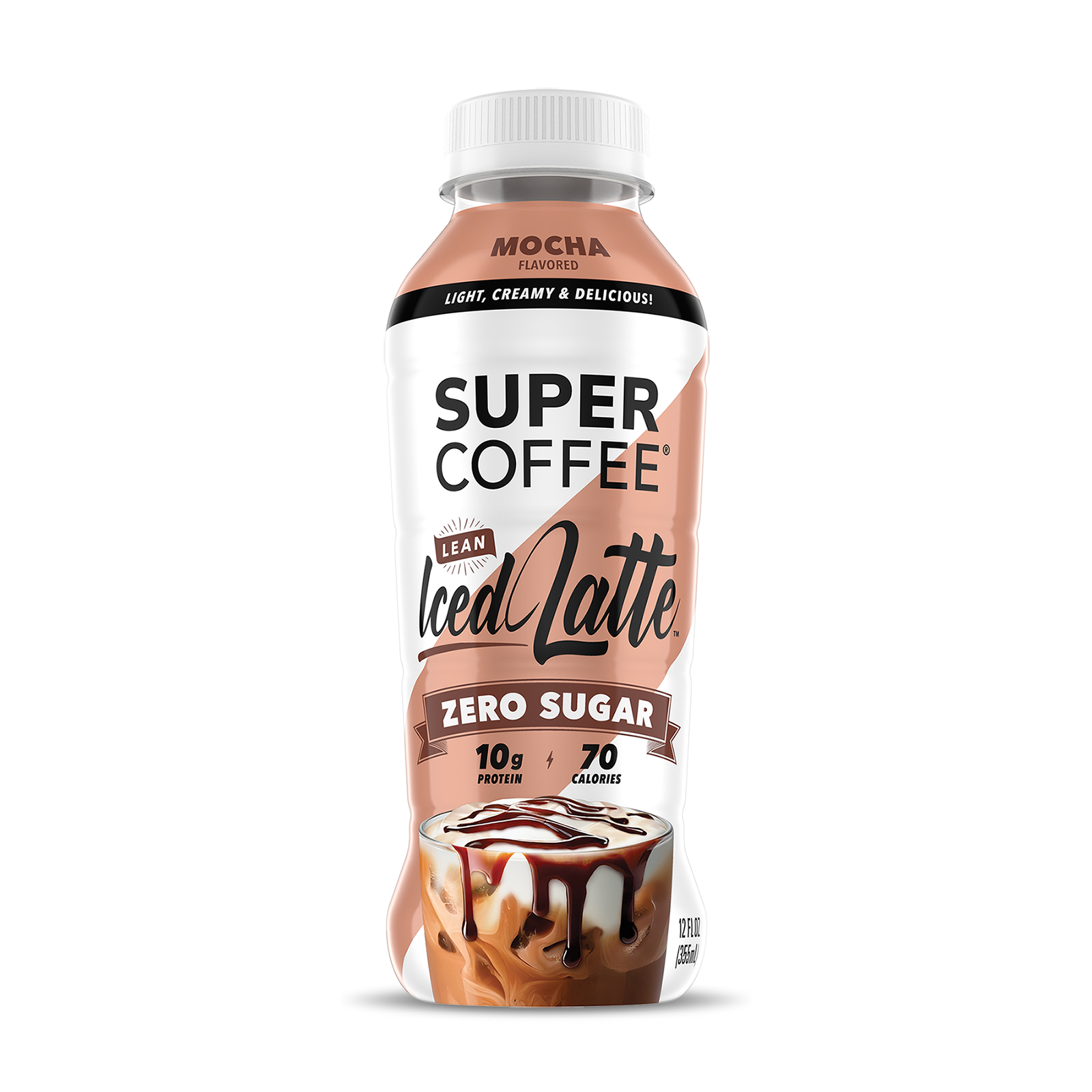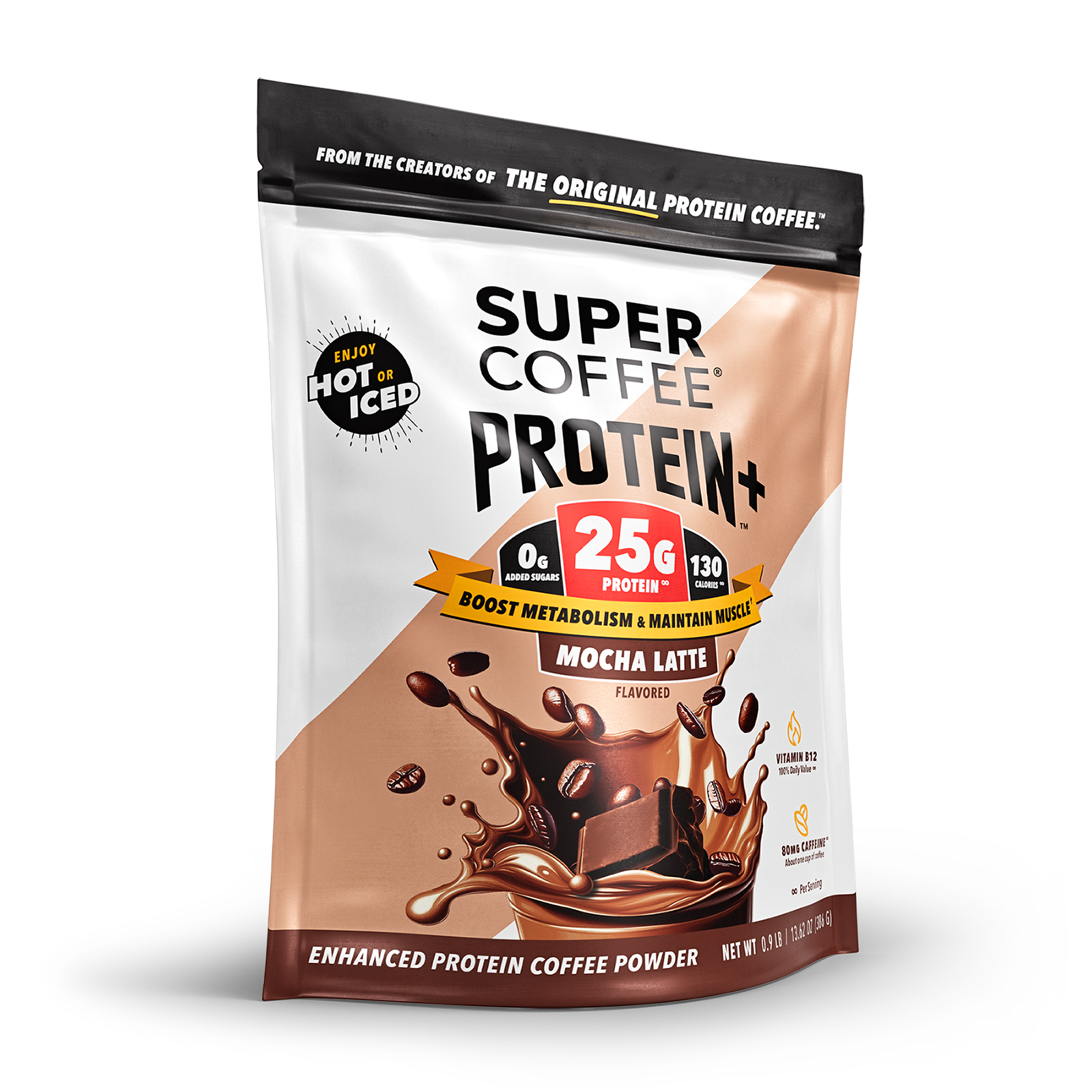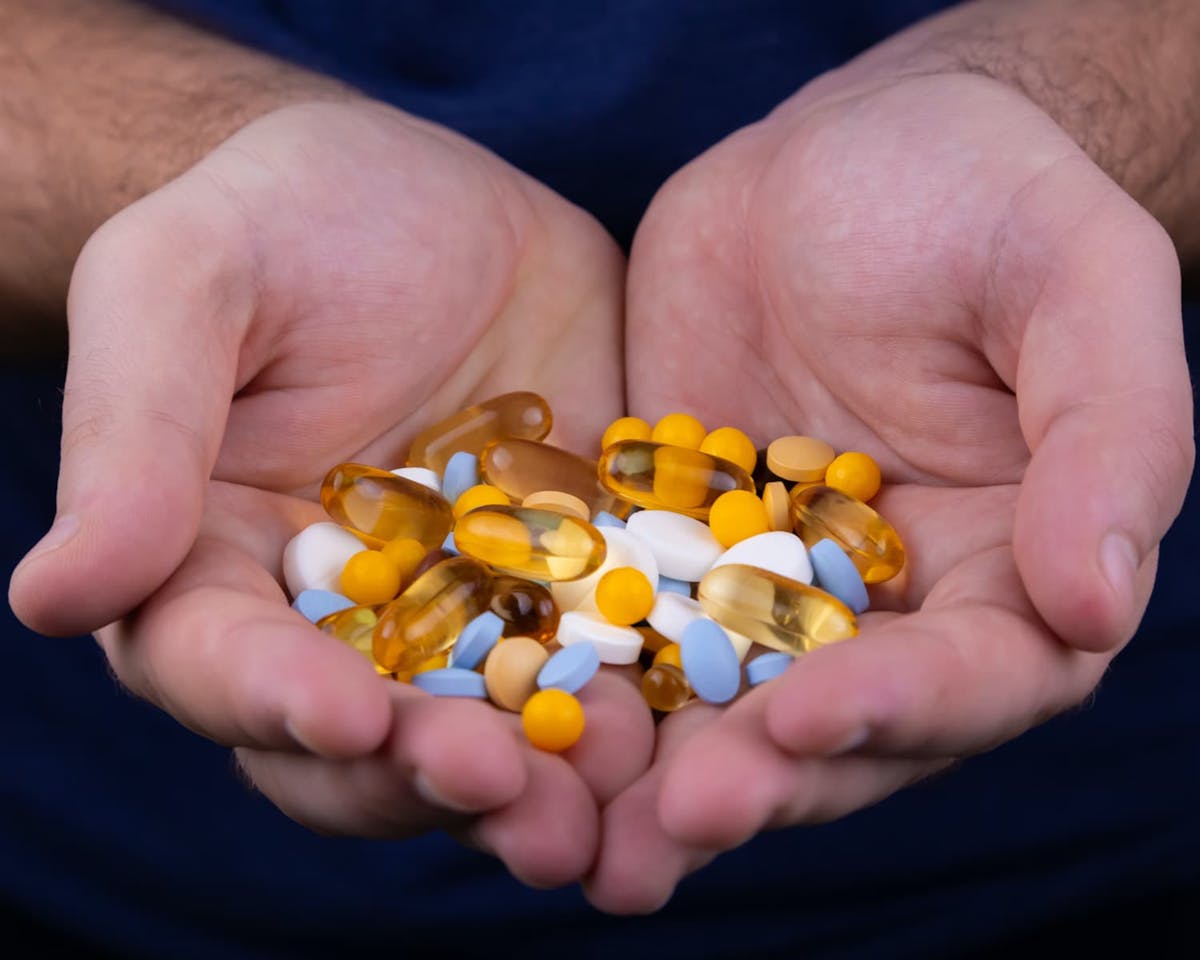Your cart is empty
Many people start taking vitamin supplements when they feel rundown.
That’s understandable.
We’ve heard since we were kids that we need to take vitamins every day in order to stay healthy. We’re bombarded with TV ads for women’s multivitamins, particularly ones designed for older adults. An enormous number of foods, from orange juice to milk, are fortified with vitamins.
So it’s only natural that energy drink producers add vitamins to their products as well.
That’s not a bad thing. The body needs 13 essential vitamins to work properly, and the U.S. government recommends the minimum amount of each vitamin we should consume every day.
It’s not quite that simple, though. The body needs vitamins for energy production, but the vitamins don’t actually give us more energy.
Let’s figure out what that means – and then figure out which vitamins are the most helpful.

The Body, Energy, and Vitamins
It’s important to eat a healthy diet, and guidelines established by the USDA (US Department of Agriculture) provide a widely-accepted road map for healthy eating. Those guidelines include the minimum amount of each essential vitamin that healthy adults should consume.
When it comes to generating energy, however, the totality of a diet is what’s most important. Vitamins simply play a supporting role.
How the Body Produces Energy
It’s common knowledge that the body processes food to create the energy it needs to power its metabolic functions. Proteins and fats are good sources of energy, but carbohydrates are even better.
Once carbs and the other macronutrients reach the stomach, they’re broken down to produce the glucose (blood sugar) that the body uses as fuel. That’s where vitamins enter the picture.
A quick but necessary side note: you probably remember the term “catalyst” from science class, even if you don’t remember what it means. A catalyst is a substance that triggers or aids a chemical reaction.
OK, back to energy. The digestive system can’t do all of the work to turn food into energy by itself. It needs catalysts to help with many of the chemical processes that are required.
And you’ve probably guessed what those catalysts are: vitamins (and in some cases, minerals). They’re necessary to produce the glucose that powers the body and brain. Some, like B vitamins, also help the body’s cells to efficiently use that blood sugar.
That doesn’t mean the vitamins are “used up” once energy is created. Catalysts don’t change their physical or chemical form after they’ve triggered a reaction, so the vitamins are still available to the body to help build stronger bones, strengthen the immune system, and perform their other important functions.
Are Vitamin Supplements Required for Energy Production?
People who eat healthy, balanced diets usually consume all of the vitamins they need for energy production and the other tasks that vitamins perform in the body. Unfortunately, the majority of Americans don’t have a healthy diet.
The U.S. National Health and Nutrition Survey, conducted regularly throughout the country by the Centers for Disease Control, gave the average American a failing grade on the “Healthy Eating Index.” That means vitamin supplementation could be a very good idea, to ensure – among many other benefits – that energy production is maximized.
Low energy or regular tiredness may also indicate a more serious vitamin deficiency (or mineral deficiency). They can also be symptoms of illness or disease.
If you get enough sleep but still experience daily energy problems, you should consider seeing a healthcare professional to rule out those medical issues before taking vitamins or dietary supplements, or downing energy drinks, in an effort to increase energy.
That’s the background. It’s time to talk about the best vitamins for energy production.
Energy Vitamins to Consider
Even though we’re focusing on vitamins in this article, we want to be complete. So after we complete this section, we’ll briefly look at minerals and other nutritional supplements that may also help you feel more energetic.
B Vitamins
There are eight similar but chemically distinct vitamins in this class, and all of them are catalysts needed for energy production.
Vitamin B12
Vitamin B12 is found in meat, poultry and fish, as well as in dairy products, and the body normally stores plenty of excess B12 for later use. In addition to helping the body convert food into glucose, this vitamin helps with the production of red blood cells, nerve cells, brain cells and DNA.
Vegans may be at risk for B12 deficiency since the greatest amounts of the vitamin are in animal products. They should look for foods like plant milks, tofu and yogurt that have been fortified with B12. Regular consumption of alcohol can also reduce the body’s B12 levels.
Vitamin B12, along with the other important vitamins in this class, is contained in vitamin B complex supplements. Be aware, though, that there’s no medical research proving that these vitamins will actually boost energy levels.
Vitamin B1
Also known as thiamin, vitamin B1 works as another catalyst that helps the body convert food into energy. It’s found in whole grains, animal proteins and nuts, among other foods.
Thiamin also helps with nervous system signaling, boosts brain function and memory, helps reduce circulation problems, and improves heart health. Thiamin has also been shown to reduce high blood sugar and insulin levels, and it may work in combination with prescription medications to battle depression,
Other B Vitamins
Some of these vitamins may not be quite as crucial as B12 and B1, but they’re still extremely important.
- Vitamin B2: You may know this vitamin as riboflavin. In addition to its work as an energy catalyst, it helps produce the substance ATP, which is needed to store energy in muscles.
- Vitamin B3: Most people call vitamin B3 niacin, and like all B vitamins, it helps boost the conversion of food into glucose. It’s also an antioxidant and helps make and repair DNA.
- Vitamin B5: Sometimes called pantothenic acid, vitamin B5 helps to break down fats in the body and may help reduce cholesterol levels. It also helps with many of the body’s metabolic functions.
- Vitamin B6: It’s also known as pyridoxine and is involved in a wide range of bodily functions. B6 is believed to support brain health, immune function and heart health, and may even help fight cancer.
- Vitamin B7: You may have heard of B7 by its other name, biotin. It supports healthy hair and nails. But it also helps convert food to energy, promotes brain function, helps to regulate blood sugar levels, and is needed to ensure a healthy pregnancy.
- Vitamin B9: More commonly called folic acid, the body absorbs B9 better when taken in supplement form than in food. It’s important for growth, DNA and RNA formation, fetal development, and breaking down harmful amino acids in the body.
Vitamin D
The term “vitamin D” is used to collectively refer to vitamin D2 and vitamin D3, which are almost identical. Ideally, people get all the vitamin D they need from sunlight. Many don’t, however. It’s estimated that almost one billion people worldwide suffer from a vitamin D deficiency, which can cause fatigue or low energy.
Low levels of vitamin D can also lead to muscle pain, greater susceptibility to some illnesses, and poor bone health. Getting enough of the vitamin, though, can lower the risk of diabetes, reduce a number of cardiovascular risk factors, and may help protect against breast and colorectal cancer.
Those experiencing decreased energy would be smart to have a simple blood test to determine if they’re getting enough vitamin D. It’s easily supplemented with pills, but medical advice makes a difference; too much vitamin D can be toxic.
Vitamin C
B vitamins get all of the attention, but vitamin C is also needed for energy production in the body through a complicated process. Vitamin C allows the function of enzymes that affect energy levels, as well as DNA creation and cellular integrity.
Other health benefits attributed to proper levels of vitamin C in the body include proper immune system function, wound healing, the absorption of iron, and as you probably know, the formation of the collagen needed for healthy skin and joints.
Vitamin A
We’ve mentioned that vitamin B2 helps produce the ATP needed for energy storage, and there are some studies claiming that vitamin A (also known as retinol) does much the same thing.
Vitamin A content is also why your parents told you that eating carrots would help your eyesight; carrots are rich in the vitamin. It’s also involved in the production of white blood cells, bone repair and cell growth.

Minerals and Nutritional Supplements for Energy
Claims by energy supplement manufacturers are often overblown. But the minerals and other supplements their products often contain may either help boost your energy levels – or simply make you feel like you have more energy.
Iron
A lack of energy is often caused by nutrient deficiencies. The most common is an iron deficiency, or anemia. Iron is needed to produce the hemoglobin in red blood cells, which carry oxygen throughout the body.
Anemia can be caused by pregnancy, blood loss or simply not enough iron-rich food in the diet. Meat and seafood are the best sources of iron, so vegans are more likely to have a deficiency.
Iron supplements (or in serious cases, iron infusions) can solve the problem, but a doctor should always be consulted first. Too much iron in the body can be toxic.
Magnesium
It’s not just vitamins that help the body convert food into glucose and energy. Minerals like magnesium do, too. That means a magnesium deficiency can translate into low energy levels.
The mineral is also important for optimal muscle and nerve function, and may even prevent headaches. And a magnesium deficiency can increase the risk of diabetes, high blood pressure and heart disease in addition to low energy.
Supplements are available in drugstores and online, but you can boost your body’s magnesium levels by adding more fish, nuts and whole grains to your diet.
Calcium
Calcium isn’t directly involved in the production of energy. However, low levels of calcium can accelerate weight gain, with the body storing glucose as fat instead of using it for energy. By contrast, enough calcium in the diet makes weight loss easier and improves metabolism.
The mineral, of course, contributes to healthy bones and teeth. It also helps regulate heart rhythms and nerve function, and helps blood clot properly. Dairy products are the best natural source of calcium but it’s also found in dark leafy vegetables and legumes, and the mineral is often added to vegan products. Calcium supplements are available but may carry undesirable side effects.
Ashwagandha
Used for millennia in Indian Ayurvedic medicine, this herb is said to increase the body’s ability to withstand stress and ease fatigue that’s normally experienced after exercise – seemingly providing an energy boost.
Ashwagandha works by regulating the release of the “stress hormone” cortisol; it may also ease anxiety and pain and reduce inflammation. It’s available as a supplement in powder, liquid or capsule form, and even in gummies.
Other Supplements to Consider
- Creatine: Primarily used to enhance athletic stamina and performance, creatine provides a quick energy boost by helping the body produce additional ATP.
- Omega 3 Fatty Acids: Omega 3s are commonly found in fatty fish and other foods, but supplements are commonly taken to boost heart and overall health. The most common Omega 3, ALA, is used by the body for energy.
- Rhodiola: Rhodiola is an adaptogen that helps the body deal with stress, boost physical performance and lower mental fatigue.
- Ginseng: This herb is widely used in Eastern cultures to relieve fatigue and boost cognitive function, although there’s no medical proof of its benefits.
- Coenzyme Q10: CoQ10 helps cells protect themselves from oxidative damage. Cellular health allows full energy production and usage, but damage can cause fatigue.
Blog posts

Cold, creamy and delicious - This chocolatey cold brew recipe is the perfect treat to kickstart your morning! The Recipe Chocolate Cream Cold Brew Prep Time: 1 minutes Cook Time: 5 minutes Ingre...

Indulge in the warm embrace of autumn with Pumpkin Spice Snickerdoodles - soft, spiced, and utterly irresistible! The Recipe Pumpkin Spice Snickerdoodles Prep Time: 10 minutes Cook Time: 1 hour ...

Low Carb Berries & Cream Waffles
These low carb/low sugar waffles are delicious, wonderfully crispy on the outside, and fluffy on the inside. You can also double batch and freeze for easy weekday breakfasts. Featuring our almost-...

This may be the most fun latte recipe we’ve tried yet! With gooey & decadent black chocolate drizzle and a thick layer of creamy French Vanilla, just one sip of this iced latte will transport ...

Strawberry Sprinkle Keto Coffee Recipe
Nutritional Info Calories: 274 Fat: 26.7g Carbs: 5.7g Protein: 4.5g Sugar: 2.1g Ingredients 3 strawberries, sliced. 3-4 tbsp heavy cream or half & half. Enough ice to fill a glass. 1/2 cup S...

8 Healthy Coffee Recipes That Are Better Than Starbucks
There’s no question about it. Coffee is good for you. Those who don’t like black coffee, of course, commonly add milk, cream and sugar – even if that also means adding calories, fat or carbs to the...





